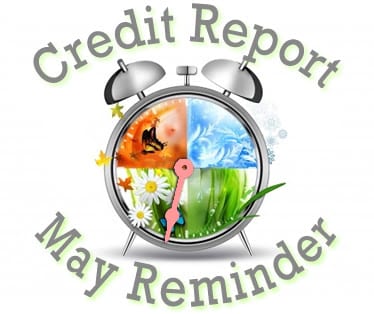This month use Equifax
Hello, it’s Jill again, reminding you to get your finances in order so you can relax this summer.
How to Order Your Credit Report
Order your credit report from www.AnnualCreditReport.com – the ONLY authorized source your no-cost annual credit report that’s yours by law. Learn more.
When ordering online – visit www.AnnualCreditReport.com:
- Select your state, then click Request Report.
- Fill out your information, then click Continue.
- When it asks you to select a service, select Equifax.
Not comfortable ordering online? There are other ways to order your report:
- Mail your postal order by downloading the form at www.AnnualCreditReport.com
- Call in your order at
 1-877-322-8228
1-877-322-8228
It doesn’t matter how you get your report, the most important thing is that you do! Then…
- Review it for accuracy!
- Follow the instructions with the report to correct any errors.
- And, always remember to keep copies for your records.
Were you hoping to get your credit score instead? Try CreditKarma.com. CreditKarma does not supply a FICO score, but it does provide scores from TransUnion and VantageScore. And, there’s no charge for you. CreditKarma funds their service through website advertising.
May you have a relaxing and successful summer!
![]()
P.S. I’ll send you another reminder in September to help you stay up-to-date on your credit before the holidays.

 You should check your credit report three times a year to check for accuracy and identity theft. (Go through
You should check your credit report three times a year to check for accuracy and identity theft. (Go through  For example, when you open a bank account with a new bank, they want to see your check writing history. Or, when you want to switch insurance companies, they want to see what claims you have filed. You can view those same reports to see if anyone has written checks or requested claims in your name. You can get a statement from your health insurance company once a year to compare to your information to what is on file. That means you may be able to catch medical identity theft early. Otherwise you wouldn’t know who is using your identity for medical theft until your insurance company declines a claim because they previously paid for it. You can do the same for prescriptions too.
For example, when you open a bank account with a new bank, they want to see your check writing history. Or, when you want to switch insurance companies, they want to see what claims you have filed. You can view those same reports to see if anyone has written checks or requested claims in your name. You can get a statement from your health insurance company once a year to compare to your information to what is on file. That means you may be able to catch medical identity theft early. Otherwise you wouldn’t know who is using your identity for medical theft until your insurance company declines a claim because they previously paid for it. You can do the same for prescriptions too. I’ll add a video here each day in April. The newest video will be on top. Scroll down for all budgeting tips you can handle!
I’ll add a video here each day in April. The newest video will be on top. Scroll down for all budgeting tips you can handle! As the weather turns to Spring, homeowner’s start to think about home improvements. Several years back, we did a major home improvement to our home and we had to make some tough decisions about what improvements to make. Do we make changes that will make our lives easier? Do we do something that would bring added value to the home? These are the tough decisions we had to make as homeowners.
As the weather turns to Spring, homeowner’s start to think about home improvements. Several years back, we did a major home improvement to our home and we had to make some tough decisions about what improvements to make. Do we make changes that will make our lives easier? Do we do something that would bring added value to the home? These are the tough decisions we had to make as homeowners. If you are planning to sell in the near future, then recouping your expenses is a major factor in your choice. Talk with a realtor and discuss what improvements will increase your home’s value and recoup your money.
If you are planning to sell in the near future, then recouping your expenses is a major factor in your choice. Talk with a realtor and discuss what improvements will increase your home’s value and recoup your money.